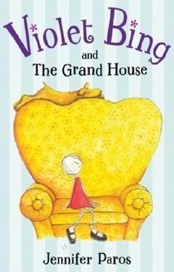Let Things Be Small: Learning How to Stop Trying to Control Stuff
by Jennifer Paros
“Nothing is more diminishing than trying to control success or hold onto things.”
My youngest son was diagnosed as autistic when he was six. He often walked the line between atypical and typical; he was communicative in his way, relatable, bright and loving, though his interest in his internal world far outweighed his interest in the external world. Mainly he was striving to block out the external world. Over time, I fell to trying to control conditions so life might be easier for him and for me. I didn’t want those phone calls from his school; I didn’t want him to melt down or to hear about the “inappropriateness” of what he’d done or said again. I yearned for the day he would be engaged enough that I could step back and be free from what felt like an overwhelming responsibility. But trying to control things is completely inharmonious with freedom.
My internal narrative was powerful: I had to keep things from going off the rails. And this story was more overwhelming than any reality I was actually living. I was compelled to try to control the small stuff, so it all became big. And the bigger it seemed, the more I believed I had to manage it so everything would be okay.
There is much talk about letting go (the opposite of trying to control), but not much acknowledgement of the reason we’re so compelled to hold on in the first place. Letting go is actually natural. To feel we have to hold on, there must be a story of untrue importance at play. In order to find relief and release, that big story has to shrink. Letting go occurs with the recognition of the falseness of the story we’ve been believing. Seen against a bigger truth, the narrative withers and lets go of us.
When I was given a publishing contract for my children’s book years ago, in all the excitement and seeming bigness of the moment, I knew it would be better for me to let it be small. This didn’t mean diminishing the value of my work; it meant not making the book bigger than the creativity, drive, and love that had made it. This way, what was really important could still be found in me and through me – not out there. If we believe that what is of greatest import is outside of us, we feel the need to control it. When we embrace the actual home of the largeness of life – the creative force within – external things seem less critical and more manageable. And the heavy story of having to manipulate outcomes lifts off of us.
“When I look up in the universe, I know I’m small, but I’m also big. I’m big because I’m connected to the universe, and the universe is connected to me.”
Early on, my relationship with my (now) husband was long distance, and phone conversations were central. I loved those conversations, though I didn’t love what I came to call his big talk. He had a penchant for projections that were a little puffed up and out of step with us. He used to tell me, not only that he loved me, but also that I loved him. (At the time, I wasn’t ready to say it.) I encouraged him to dial down the big talk; I wanted where we were to evolve naturally. I didn’t want to force anything nor become overwhelmed telling a story that was ahead of myself, bigger than what I was ready for in the moment.
We can acknowledge the meaningfulness of something without inflating it. Every time we dramatize, assess, judge, or over-glorify, we add more construction to what was once simple. There is a way to return to the simplicity: by identifying any escalation and watching as what is real remains standing, while all the rest falls away.
When we let things be small, we allow ourselves to get in step with the power in us that is big. Over the years I’ve gotten sideways of my desire to do many things – including my desire to write. The narrative of having to control possible failures, inabilities, and difficulties weighted my efforts. But I’ve learned we can, at any time, recognize the falseness of the urgency and import that comes of trying to boss life, and return to identifying with the energy, intelligence and love behind it. Once identified with that energy, it becomes clear that we are plenty big enough to create whatever we want.
Jennifer Paros is a writer, illustrator, and author of Violet Bing and the Grand House (Viking, 2007). She lives in Seattle. Please visit her website.

